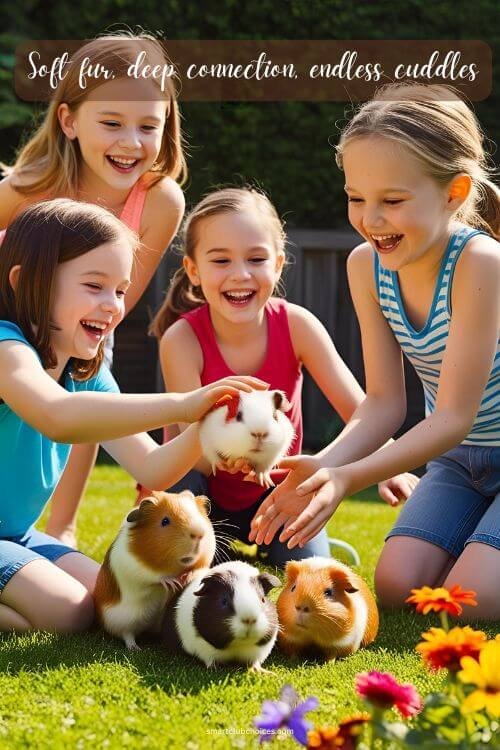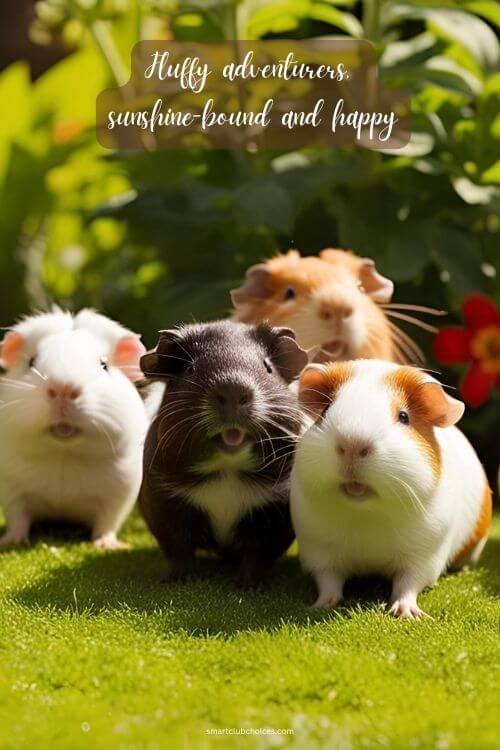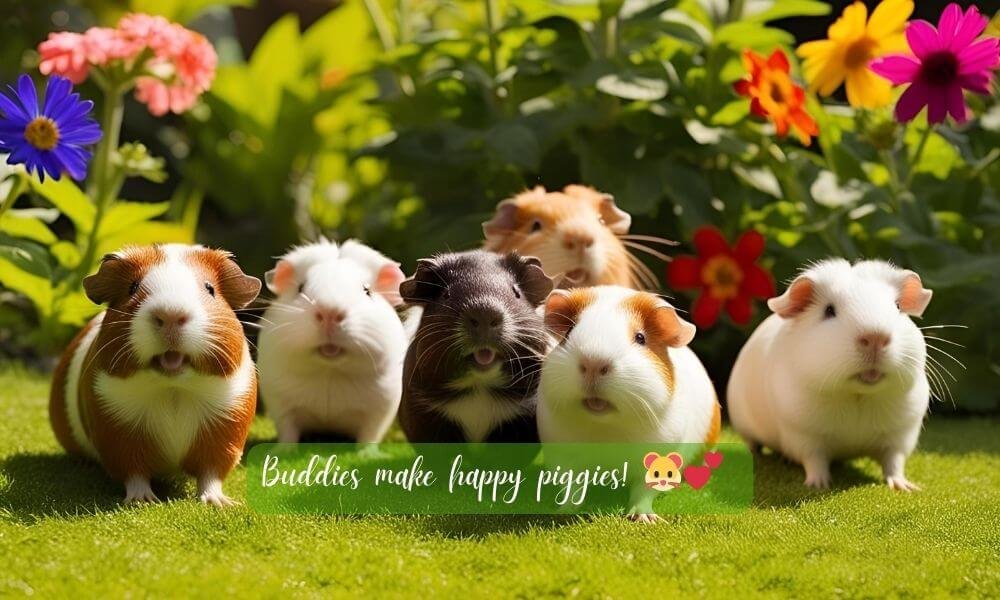Do Guinea Pigs Need a Friend? Understanding Their Social Needs
Guinea pigs are the social butterflies of the small pet world. They’re chatty, curious, and absolutely thrive on companionship.
If you’ve ever heard your guinea pig wheek at the top of their lungs, chances are they’re either begging for food or calling out for a friend.
But do guinea pigs really need a buddy, or are they just fine flying solo? Let’s dive into the wonderful world of guinea pig social needs and find out!
Table of Contents
(1) Guinea Pigs Are Herd Animals—Not Loners
In the wild, guinea pigs live in groups called herds. They’re not the type to wander off and live the lone wolf (or lone pig) lifestyle. Instead, they stick together, forage together, and even nap together. This social structure is hardwired into their DNA, which means your pet guinea pig is no different.
Why Are They So Social?
- Safety in Numbers: In the wild, sticking together helps them avoid predators.
- Emotional Support: Guinea pigs are sensitive creatures who find comfort in the company of their own kind.
- Playtime: Let’s face it—life is more fun with a buddy to popcorn and zoom around with.
So, while your guinea pig might adore you (especially if you’re the one with the veggies), they still crave the company of their own species.

(2) The Benefits of Having a Guinea Pig Friend
If you’re on the fence about getting a second guinea pig, let us convince you. Here are some of the amazing benefits of having a dynamic duo (or trio, or quartet—you do you).
They’ll Be Happier: A lonely guinea pig is a sad guinea pig. With a friend, they’ll have someone to chat with, snuggle with, and share their veggies with (okay, maybe not the veggies).
They’ll Be Less Stressed: Guinea pigs are prey animals, which means they’re always on high alert. Having a buddy around can help them feel safer and more relaxed.
They’ll Stay Active: Two guinea pigs are twice as likely to popcorn, zoom, and explore their environment. It’s like having a built-in workout buddy!
They’ll Keep Each Other Company When You’re Busy: Let’s be real—you can’t spend every waking moment with your guinea pig. A friend ensures they’re never lonely, even when you’re at work or binge-watching your favorite show.
(3) Can Guinea Pigs Live Alone?
Okay, let’s address the elephant in the room (or should we say, the guinea pig in the cage?). Can guinea pigs live alone? Technically, yes—but it’s not ideal.
When Solo Life Might Work
- Aggressive Guinea Pigs: Some guinea pigs just don’t play well with others. If your piggy has a history of fighting, they might be better off alone.
- Health Issues: If one guinea pig is sick or has special needs, it might be easier to care for them separately.
The Downsides of Solo Life
- Loneliness: Guinea pigs are social creatures, and living alone can lead to depression and stress.
- Boredom: Without a friend to interact with, your guinea pig might become lethargic or develop bad habits like over-grooming.
If you do have a solo guinea pig, you’ll need to step up your game. Spend extra time with them, provide plenty of toys, and consider getting them a stuffed animal buddy (yes, some guinea pigs actually cuddle with them!).
(4) Choosing the Right Friend for Your Guinea Pig
Not all guinea pigs are instant BFFs. Introducing a new piggy requires some thought and planning to ensure they get along. Here’s how to find the perfect match:
Pairing by Gender
- Two Females: Female guinea pigs (sows) tend to get along well and are less likely to fight.
- Two Males: Male guinea pigs (boars) can live together, but they need plenty of space and a careful introduction.
- Mixed Pairs: A neutered male and a female can make a great pair, but avoid unneutered males unless you’re ready for baby guinea pigs (and trust us, you’re not).
Age Matters
Pairing a young guinea pig with an older one can work well, as long as their energy levels are compatible. Just make sure the older piggy isn’t overwhelmed by a hyperactive youngster.
Personality Match
Some guinea pigs are laid-back, while others are more dominant. Try to pair piggies with complementary personalities to avoid clashes.
The Introduction Process
Introduce your guinea pigs on neutral territory (not in their cage) and supervise their interactions. Be patient—it might take a few days (or even weeks) for them to warm up to each other.
(5) What If They Don’t Get Along?
Even with the best intentions, not all guinea pigs will become besties. If your piggies are fighting or showing signs of stress, here’s what to do:
Give Them Space: Make sure their cage is big enough for both of them. A cramped cage is a recipe for conflict.
Provide Multiple Resources: Have two of everything—food bowls, water bottles, and hiding spots—to prevent competition.
Try a Buddy Bath: Some guinea pig owners swear by the “buddy bath” method, where both piggies are gently bathed together to help them bond over a shared experience.
Consult a Vet or Expert: If all else fails, seek advice from a vet or guinea pig expert. Sometimes, separation is the best option for their well-being.

(6) Conclusion: Two Guinea Pigs Are Better Than One
So, do guinea pigs need a friend? The answer is a resounding YES! These social little creatures thrive on companionship, and having a buddy can make a world of difference in their happiness and health.
If you’re considering getting a second guinea pig, go for it! Just remember to choose the right friend, introduce them carefully, and provide a spacious, enriching environment for them to enjoy together.
And if you’re already a proud parent of a solo guinea pig, don’t worry—you’re doing great! Just make sure to give them plenty of love, attention, and maybe a stuffed animal to cuddle with.
At the end of the day, a happy guinea pig is one that feels safe, loved, and surrounded by friends—whether that’s another piggy or their favorite human.
Now, go forth and spread the guinea pig love!








